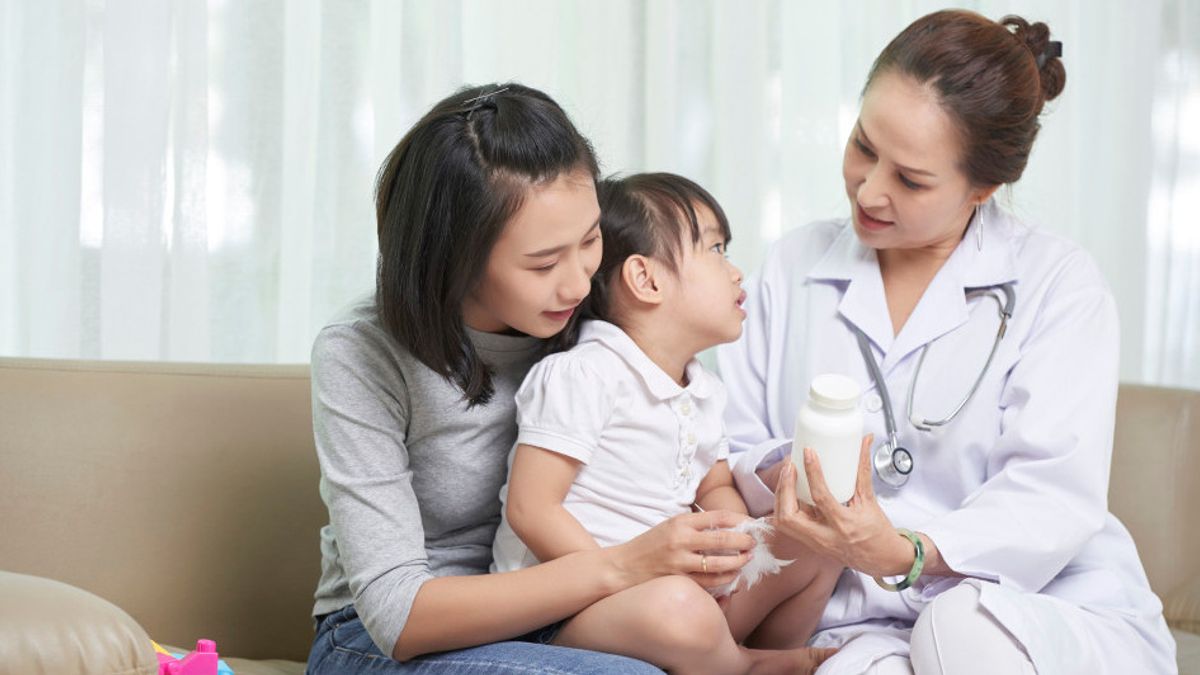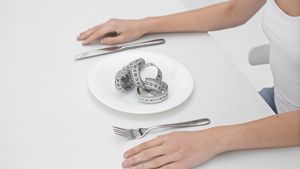YOGYAKARTA Many cases of acute kidney failure in children are reported which are correlated by taking medication to reduce paracetamol fever. This case began in Gambia, Africa, which declined after the recommendation for banning paracetamol from drinking fever. The reason is, paracetamol contains a dangerous formula for the kidneys, especially in children.
Launching VOI, Wednesday, October 19, acute kidney failure is experienced by children in several areas, such as Yogyakarta, Jakarta, and Banyumas. According to the Ministry of Health's appeal, stop the use of mild drugs. Including those suspected of correlating with acute kidney failure in children, namely paracetamol. The cause of acute kidney failure in children is still comprehensively studied. It has not been concluded what compound is in quick medicine that endangers the health of children.
In more detail, see the doctor's explanation of symptoms, causes, and how to prevent acute kidney failure in children below.
Acute kidney failure is a rapid decrease and sudden decrease in the function of kidney screening. According to dr. Anita Larasati Priyono, health educator and AiCare medical team, acute kidney failure is characterized by increased blood content. As well as patients who experience increased blood nitrogen-urea concentration and/or decrease until there is absolutely no urinary production, are the characteristics of acute kidney failure.
A person with prodromal, characterized by fever in 7-14 days, vomiting or diarrhea nausea, and coughing runny nose as well as symptoms of acute kidney failure that need to be watched out for. Typical symptoms of acute kidney failure, said doctor Anita, the patient experienced a decrease in the volume of urinary or even no sakit at all.
Acute kidney failure correlates with the consumption of certain types of drugs with doses exceeding recommended safe consumption. This is one of the common causes of acute kidney failure in children. Many types of drugs are studied, among which have the potential to damage the kidneys. One of the types of non-streroid anti-inflammatory drugs (OAINS/NSAID) such as paracetamol, if consumed by overdose can trigger damage to the function of screening in the kidneys.
So can acute kidney failure in children be prevented? According to doctor Anita, excessive consumption of OAINS class drugs is related or can risk causing kidney damage.
In the case of acute kidney failure in Gambia, Africa, which is suspected of being due to the content of polyethyl glycol (PEG), it is necessary to re-examine the dose of use. PEG is generally used in pharmaceutical products as solvents, plastics, surfactants, clots, as well as lubricants of capsules and tablets.
This substance can indeed cause an increase in the content of oxalates in the bladder. The bad effect if consumed excessively, can cause kidney disease, including crystalline nephropathy, acute kidney failure, and chronic kidney disease. However, PED has low toxicity with less than 0.5 percent absorption in the blood.
Regarding the use of paracetamol fever reliever which correlates with acute kidney failure in children in Gambia, Africa, prevention also needs to be done in Indonesia. But due to acute kidney failure, it is often difficult to predict or prevent, advises doctor Anita, follow the doctor's advice in taking medicines. Drink according to the doctor's advice and calculate the dosage accurately.
Before taking hot depletion medication, parents can deal with fever independently, as noted by doctor Anita below:
Heat reduction drugs can be given when the fever does not stop. Heat reduction is also mandatory in accordance with the rules for using drugs or according to the doctor's recommendation. For paracetamol, it can be given a maximum of 4 times a day with a minimum distance of 4 hours and a dose of every 10-15 mg/kilogram for the child's weight. The maximum dose of administration is 650 milligrams even though the child's weight is more than 44 kilograms.
That is an explanation of the symptoms of acute kidney failure and the causes and ways of prevention. If you experience the symptoms mentioned above, check the child to a nearby doctor for medical treatment.
The English, Chinese, Japanese, Arabic, and French versions are automatically generated by the AI. So there may still be inaccuracies in translating, please always see Indonesian as our main language. (system supported by DigitalSiber.id)













